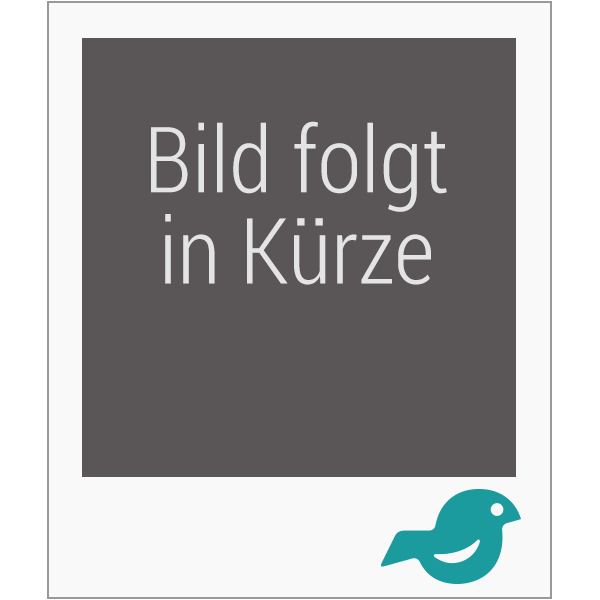Nicht lieferbar

Spoken Language Corpus and Linguistic Informatics
Versandkostenfrei!
Nicht lieferbar
Main description:Linguistic Informatics is a research field named by the Center of Excellence (COE) Program: Usage-Based Linguistic Informatics (UBLI), which aims to systematically integrate studies in computer science, linguistics, and language education. The first part of this volume contains three lectures on spoken language analysis and corpus linguistics delivered at the Second International Conference on Linguistic Informatics held on December 10, 2005. The nine contributions in the second part come from the Collaboration Workshop on spoken language corpora between UBLI and C-ORAL-ROM, a...
Main description:
Linguistic Informatics is a research field named by the Center of Excellence (COE) Program: Usage-Based Linguistic Informatics (UBLI), which aims to systematically integrate studies in computer science, linguistics, and language education. The first part of this volume contains three lectures on spoken language analysis and corpus linguistics delivered at the Second International Conference on Linguistic Informatics held on December 10, 2005. The nine contributions in the second part come from the Collaboration Workshop on spoken language corpora between UBLI and C-ORAL-ROM, a consortium researching the spoken Romance languages. In the third part, four studies representative of Linguistic Informatics are presented. These studies deal with Corpus-based analysis of linguistic usages, Typological study of different languages, Effective integration of e-learning and task-based face-to-face teaching and Fosterage of language education researchers with expertise in the field of Linguistic Informatics.
Table of contents:
- Message from the President
- 1. The Second International Conference on Lilnguistic Informatics
- Introduction
- Foundations of Center of Usage-Based Linguistic Informatics (UBLI)
- Linguistic Analysis of Spoken Language -The Case of French Language -
- Challenges for English Corpus Linguistics in Second Language Acquisition Research
- C-ORAL-ROM -Prosodic Boundaries for Spontaneous Speech Analysis-
- Conclusion
- 2. Workshop on Spoken Language Corpora 2; C-ORAL-ROM and UBLI
- Introduction
- 2.1. C-ORAL-ROM
- Some Comparisons between UBLI and C-ORAL-ROM
- Units of Analysis of Spontaneous Speech and Speech Variation in a Cross-linguistic Perspective
- C-ORAL-ROM 2; French Corpus-
- Morpho-syntactic Tagging of the Spanish C-ORAL-ROM Corpus
- The Role of Spoken Corpora in Teaching/Learning Portuguese as a Foreign Language
- Typologies of MultiWord Expressions Revisited
- 2.2. UBLI
- Usage-Based Approach to Linguistic Variation
- Viewpoint and Postrheme in Spoken Turkish
- Nonreferential Use of Demonstrative Pronouns in Colloquial Malay
- 3. Linguistic Informatics
- Introduction
- German Language Research Methodology Based on Language Use
- Developing Grammatical Modules Based on Linguistic Typology
- Introducing a Task Activity for Less Proficient Learners
- The Relationship between VOT in Initial Voiced Plosives and the Phenomenon of Word-Medial Plosives in Nigata and Shikoku
- On the Semantic Structure of English Spatial Particles Involving Metaphors
- Language Policy and Language Choice
- Index of Proper Nouns
- Index of Subjects
- Contributors
Linguistic Informatics is a research field named by the Center of Excellence (COE) Program: Usage-Based Linguistic Informatics (UBLI), which aims to systematically integrate studies in computer science, linguistics, and language education. The first part of this volume contains three lectures on spoken language analysis and corpus linguistics delivered at the Second International Conference on Linguistic Informatics held on December 10, 2005. The nine contributions in the second part come from the Collaboration Workshop on spoken language corpora between UBLI and C-ORAL-ROM, a consortium researching the spoken Romance languages. In the third part, four studies representative of Linguistic Informatics are presented. These studies deal with Corpus-based analysis of linguistic usages, Typological study of different languages, Effective integration of e-learning and task-based face-to-face teaching and Fosterage of language education researchers with expertise in the field of Linguistic Informatics.
Table of contents:
- Message from the President
- 1. The Second International Conference on Lilnguistic Informatics
- Introduction
- Foundations of Center of Usage-Based Linguistic Informatics (UBLI)
- Linguistic Analysis of Spoken Language -The Case of French Language -
- Challenges for English Corpus Linguistics in Second Language Acquisition Research
- C-ORAL-ROM -Prosodic Boundaries for Spontaneous Speech Analysis-
- Conclusion
- 2. Workshop on Spoken Language Corpora 2; C-ORAL-ROM and UBLI
- Introduction
- 2.1. C-ORAL-ROM
- Some Comparisons between UBLI and C-ORAL-ROM
- Units of Analysis of Spontaneous Speech and Speech Variation in a Cross-linguistic Perspective
- C-ORAL-ROM 2; French Corpus-
- Morpho-syntactic Tagging of the Spanish C-ORAL-ROM Corpus
- The Role of Spoken Corpora in Teaching/Learning Portuguese as a Foreign Language
- Typologies of MultiWord Expressions Revisited
- 2.2. UBLI
- Usage-Based Approach to Linguistic Variation
- Viewpoint and Postrheme in Spoken Turkish
- Nonreferential Use of Demonstrative Pronouns in Colloquial Malay
- 3. Linguistic Informatics
- Introduction
- German Language Research Methodology Based on Language Use
- Developing Grammatical Modules Based on Linguistic Typology
- Introducing a Task Activity for Less Proficient Learners
- The Relationship between VOT in Initial Voiced Plosives and the Phenomenon of Word-Medial Plosives in Nigata and Shikoku
- On the Semantic Structure of English Spatial Particles Involving Metaphors
- Language Policy and Language Choice
- Index of Proper Nouns
- Index of Subjects
- Contributors




